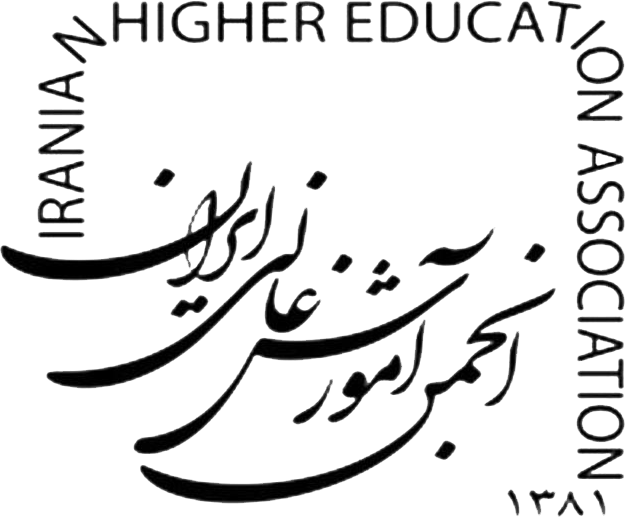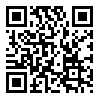Volume 17, Issue 1 (2025)
ihej 2025, 17(1): 26-50 |
Back to browse issues page
Download citation:
BibTeX | RIS | EndNote | Medlars | ProCite | Reference Manager | RefWorks
Send citation to:



BibTeX | RIS | EndNote | Medlars | ProCite | Reference Manager | RefWorks
Send citation to:
Rahmani E, Nouraie S. Assessing the Status of Critical Thinking Skills in Iranian Universities:
A Systematic Review of Two Decades (2002–2024). ihej 2025; 17 (1) :26-50
URL: http://ihej.ir/article-1-2102-en.html
URL: http://ihej.ir/article-1-2102-en.html
1- Assistant Professor, Department of Architecture, Sha.C., Islamic Azad University, Shahrood, Iran , elaheh.rahmani@iau.ac.ir
2- Assistant Professor, Department of Architecture, Sha.C., Islamic Azad University, Shahrood, Iran
2- Assistant Professor, Department of Architecture, Sha.C., Islamic Azad University, Shahrood, Iran
Abstract: (1733 Views)
Objective: This study examines the status of critical thinking skills in Iranian educational contexts from 2002 to 2024. The theoretical framework is grounded in critical thinking theories, emphasizing its importance as the ability to analyze, evaluate, and reconstruct thinking for logical decision-making. Critical thinking is considered a fundamental pillar of modern education and a prerequisite for both individual and social development.
Method: This study adopts a systematic review methodology, structured around the overarching question: “What is the status of critical thinking skills in Iranian educational contexts with an emphasis on university environments”. Studies conducted in the field of critical thinking skills assessment were systematically reviewed without time restrictions in the following databases: Magiran, IranDoc, Science Direct, PubMed, Scopus, Web of Science, IranMedex, Google Scholar, Elsevier, SID, Elmnet, and other reputable sources, in both Persian and English. The main keywords “critical thinking”, “skills assessment”, “evaluation”, and “Iran” were utilized using OR and AND operators. Out of a total of 575 articles, after removing duplicates, excluding irrelevant ones, and applying the inclusion and exclusion criteria, 94 studies were ultimately included. The extracted data were analyzed descriptively and synthetically through a systematic synthesis.
Results: Systematic review findings indicate weak critical thinking skills in Iranian students. Analysis of 23-year data reveals no meaningful changes in the long term. The level of critical thinking skills has not only failed to improve over the past two decades but has also shown relative stability at a low level. Low critical thinking scores of first-year students demonstrate pre-higher education system's failure in developing the skill. No significant difference is observed between first-year and final-year university students' critical thinking scores, revealing no progression across academic levels. This demonstrates the inadequacy of Iran's educational system in fostering the skill at primary and higher education levels.
Conclusion: It is imperative that the development of critical thinking skills becomes one of the core priorities of Iran's educational system. A comprehensive revision of current “instructional methods” and “explicit and structured teaching of these skills” across all educational levels is essential. It is recommended to conduct longitudinal studies to assess critical thinking skills across all academic disciplines, along with developing standardized and optimized assessment tools tailored to the university environment.
Method: This study adopts a systematic review methodology, structured around the overarching question: “What is the status of critical thinking skills in Iranian educational contexts with an emphasis on university environments”. Studies conducted in the field of critical thinking skills assessment were systematically reviewed without time restrictions in the following databases: Magiran, IranDoc, Science Direct, PubMed, Scopus, Web of Science, IranMedex, Google Scholar, Elsevier, SID, Elmnet, and other reputable sources, in both Persian and English. The main keywords “critical thinking”, “skills assessment”, “evaluation”, and “Iran” were utilized using OR and AND operators. Out of a total of 575 articles, after removing duplicates, excluding irrelevant ones, and applying the inclusion and exclusion criteria, 94 studies were ultimately included. The extracted data were analyzed descriptively and synthetically through a systematic synthesis.
Results: Systematic review findings indicate weak critical thinking skills in Iranian students. Analysis of 23-year data reveals no meaningful changes in the long term. The level of critical thinking skills has not only failed to improve over the past two decades but has also shown relative stability at a low level. Low critical thinking scores of first-year students demonstrate pre-higher education system's failure in developing the skill. No significant difference is observed between first-year and final-year university students' critical thinking scores, revealing no progression across academic levels. This demonstrates the inadequacy of Iran's educational system in fostering the skill at primary and higher education levels.
Conclusion: It is imperative that the development of critical thinking skills becomes one of the core priorities of Iran's educational system. A comprehensive revision of current “instructional methods” and “explicit and structured teaching of these skills” across all educational levels is essential. It is recommended to conduct longitudinal studies to assess critical thinking skills across all academic disciplines, along with developing standardized and optimized assessment tools tailored to the university environment.
Keywords: critical thinking, Iranian universities, assessment of critical thinking skills, systematic review, educational system
Type of article: Review |
Subject:
General
Received: 2025/04/26 | Accepted: 2025/06/20 | ePublished ahead of print: 2025/09/19
Received: 2025/04/26 | Accepted: 2025/06/20 | ePublished ahead of print: 2025/09/19
Send email to the article author
| Rights and permissions | |
 |
This work is licensed under a Creative Commons Attribution-NonCommercial 4.0 International License. |





